Beijing announced on Wednesday that it plans to revoke the credentials of journalists working for the New York Times, Wall Street Journal and Washington Post, effectively expelling them from China. The move represented a significant escalation in a tit-for-tat dispute between Washington and Beijing, as the Chinese authorities complained of unwarranted restrictions against state media staff in the US.
Earlier in March, Washington cut the number of Chinese citizens allowed to work for Beijing’s state-run media in the US by almost half following the ousting of three Wall Street Journal reporters from China.

The foreign ministry said in a statement that reporters for the three American news organisations would also be prohibited from working in Hong Kong and Macau, though it is unclear how the restriction will be implemented due to press freedom guarantees in the Special Administrative Regions. Affected journalists have been ordered to return their press cards which expire at the end of this year within 10 days.
HKFP rounds up of reactions to the news.
Foreign governments, agencies and politicians
United States National Security Council
The United States National Security Council said in a tweet the decision to expel journalists from China and Hong Kong was another step towards depriving Chinese people and the world of access to “true” information about the country.
The United States calls on China’s leaders to refocus their efforts from expelling journalists and spreading disinformation to joining all nations in stopping the Wuhan coronavirus. (2/2)
— NSC (@WHNSC) March 17, 2020
Congressional-Executive Commission on China (CECC)
The Congressional-Executive Commission on China in the US condemned the expulsions as an attempt to censor reporting on the ongoing coronavirus pandemic, first detected in China’s Hubei province.
Expelling journalists from #China in the midst of a pandemic is outrageous and limits access to uncensored information about the virus as well as trusted econ data required by investors. Beijing further erodes #HongKong’s autonomy by denying expelled reporters from working there. https://t.co/P5lhDZGwOX
— China Commission (@CECCgov) March 18, 2020
US Secretary of State Mike Pompeo

Senator Marco Rubio
The journalist expulsions “show the true nature of the Chinese Communist Party towards a free and open press,” said Senator Marco Rubio.
#China expelling @WSJ @nytimes @washingtonpost journalists from the country shows the true nature of the #ChineseCommunistParty towards a free and open press. The CCP will go to great lengths to stop journalists from exposing the truth about gov’t lies, abuse, and corruption. https://t.co/2Td29WygPD
— Senator Rubio Press (@SenRubioPress) March 18, 2020
The Hong Kong government
“Hong Kong enjoys press freedom. The HKSAR Government has been facilitating media organisations and journalists from other countries to cover news in Hong Kong. This policy is in compliance with the Basic Law and the ‘One Country, Two Systems’ principle,” the local government said.

“Hong Kong has always adopted a pragmatic and open policy on the employment of professionals in Hong Kong, allowing those possessing special skills, knowledge or experience of value to and not readily available locally to work in Hong Kong, including journalistic work.”
“In handling each immigration case, the Immigration Department will consider the circumstances of the case and act in accordance with the laws and immigration policies.”
China’s Ministry of Foreign Affairs Spokesperson Hua Chunying
“We reject ideological bias against China, reject fake news made in the name of press freedom, reject breaches of ethics in journalism,” said China’s Ministry of Foreign Affairs Spokesperson Hua Chunying.
We reject ideological bias against China, reject fake news made in the name of press freedom, reject breaches of ethics in journalism.
— Hua Chunying 华春莹 (@SpokespersonCHN) March 18, 2020
Former Hong Kong governor Lord Chris Patten and British politicians
In a jointly-signed letter to the UK foreign office, Patten, former UK foreign secretary Sir Malcolm Rifkind, MPs Alistair Carmichael, Fiona Bruce, Catherine West and barrister Sir Geoffrey Nice urged Downing Street to speak out on the expulsions.
“This is yet another example of the intensifying erosion of Hong Kong’s basic freedoms and autonomy, which have been increasingly undermined over the past six years. It is also a breach of the Sino-British Joint Declaration, which guarantees Hong Kong’s freedoms and autonomy under the ‘One Country, Two Systems’ principle fo the first 50 years after the handover of Hong Kong to Chinese sovereignty,” it read.

“As a co-signatory to the Joint Declaration, the United Kingdom has a responsibility to lead the world in speaking out in the clearest and most robust terms against the outrageous decision, which not only undermines press freedom in Hong Kong but will have a further effect on business confidence in the city.”
Media
Executive Editor of the New York Times Dean Baquet
“We strongly condemn the decision of the Chinese authorities to expel American journalists, an action that is especially irresponsible at a time when the world needs the free and open flow of credible information about the coronavirus pandemic,” said Executive Editor of the New York Times Dean Baquet.
“It is critical that the governments of the United States and China move quickly to resolve this dispute and allow journalists to do the important work of informing the public. The health and safety of people around the world depend on impartial reporting about its two largest economies, both of them now battling a common epidemic.”
Statement of Dean Baquet, @nytimes executive editor, regarding China’s announcement that it would expel American journalists. https://t.co/87UAq3SKJR pic.twitter.com/AmXXhCtMaw
— NYTimes Communications (@NYTimesPR) March 17, 2020
“The New York Times has been reporting on China since the 1850s, and we remain committed to covering the country, where we have more journalists than anywhere else outside the United States. It is a grave mistake for China to move backwards and cut itself off from several of the world’s top news organisations.”
Editor in Chief of The Wall Street Journal Matt Murray
“China’s unprecedented attack on freedom of the press comes at a time of unparalleled global crisis. Trusted news reporting from and about China has never been more important,” said Editor in Chief of The Wall Street Journal Matt Murray.
Statement on China’s decision to expel U.S. journalists https://t.co/SPOy3BOWlO pic.twitter.com/Om6X1dSL7z
— WSJ Communications (@WSJPR) March 17, 2020
“We oppose government interference with a free press anywhere in the world. Our commitment to reporting fully and deeply on China is unchanged.”
Executive Editor of the Washington Post Marty Baron
“We unequivocally condemn any action by China to expel US reporters. The Chinese government’s decision is particularly regrettable because it comes in the midst of an unprecedented global crisis, when clear and reliable information about the international response to Covid-19 is essential. Severely limiting the flow of that information, which China now seeks to do, only aggravates the situation,” said Executive Editor of the Washington Post Marty Baron.
Rights groups
Foreign Correspondents Club China (FCCC)
The FCCC said in a statement that it deplored the measure, adding: “There are no winners in the use of journalists as diplomatic pawns by the world’s two pre-eminent economic powers.”
“Their imminent banishment from journalism in China diminishes us in number and in spirit, though not in our commitment to vigorously cover China.”
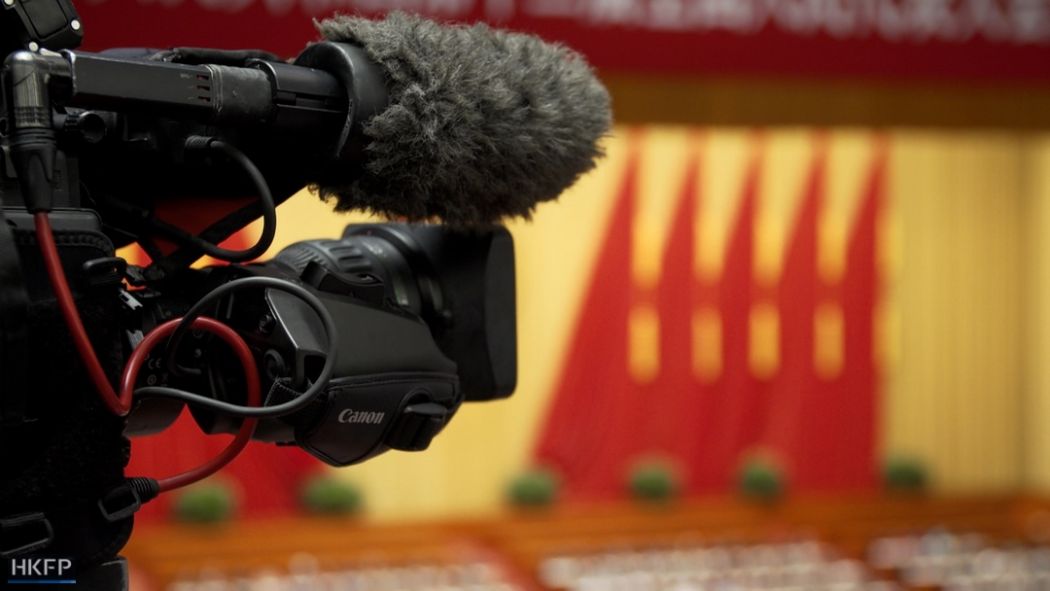
“Journalists illuminate the world we live in. China, through this action, is dimming itself… “The FCCC also deeply regrets that authorities in Beijing have taken the further step of banning affected journalists from reporting in Hong Kong and Macau. The FCCC is not aware of any precedent for such a requirement.”
8/ By expelling journalists and keeping others in a state of visa uncertainty, China is overtly using its powers in an attempt to influence overseas news coverage, by punishing those who publish information authorities see as unfavorable and wish to keep quiet.
— Foreign Correspondents’ Club of China (@fccchina) March 18, 2020
“Foreign correspondents working in China are subject to surveillance and government pressure, in an environment of extreme hostility toward the types of factual reporting Chinese authorities claim to welcome. Such conduct is as unacceptable as it is longstanding.”
Foreign Correspondents Club Hong Kong (FCC)
“The Foreign Correspondents’ Club, Hong Kong, is alarmed at the decision of the Chinese government to expel US journalists working for The New York Times, The Wall Street Journal and The Washington Post. The FCC is even more concerned by reports that they will be banned from working as journalists in Hong Kong, given that Hong Kong has its own system under which press freedom is a right according to the law,” the press club said.
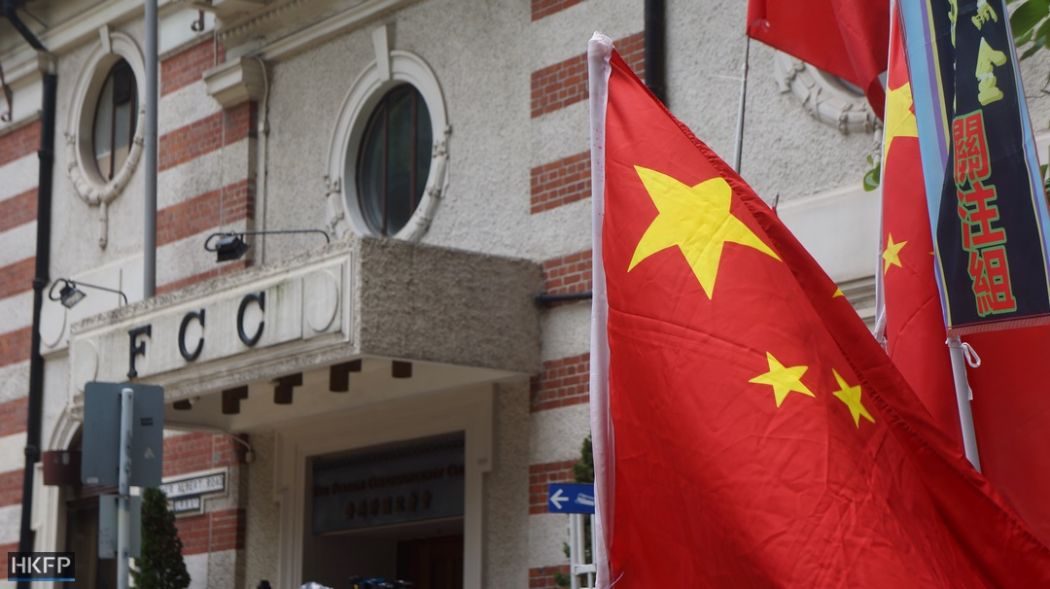
“Under the Basic Law, all decisions about employment visas for foreign nationals in Hong Kong, including journalists, have been made independently by the Immigration Department.”
“The Hong Kong government must immediately clarify the situation and must immediately and without reservation provide assurances that foreign journalists working in Hong Kong and those applying to work in Hong Kong will continue to be issued employment visas without interference from the Chinese government.”
Human Rights Watch
Yaqiu Wang, China researcher at Human Rights Watch, condemned the expulsions as an attempt to censor foreign reporting: “The Chinese government’s unprecedented move chokes off a major element of the very limited space for reporting in China… Authorities already exercise near-total control over the domestic media, such that the foreign press has been vital in enhancing the world’s understanding of China.”

“In the midst of a global health crisis – when accurate and timely information is needed more than ever – Beijing’s decision only seals its image as an enemy of a free press.”
“The Chinese government should immediately withdraw the ban and allow free reporting by domestic and foreign reporters.”
Amnesty International
Joshua Rosenzweig, head of Amnesty International’s China team, called the expulsions disturbing: “This shameful assault on freedom of expression targets journalists who have uncovered the reality of numerous human rights violations in China, from Xinjiang to Hong Kong. These publications have also been among those providing in-depth investigations into Wuhan’s Covid-19 outbreak.”
“This latest escalation of the tit-for-tat row between Beijing and Washington threatens to severely undercut the flow of accurate and independent information from China. At a time when the world needs to work together to combat the devastation wrought by the virus, the banishment of these journalists could potentially have grim public health consequences – globally and within China.”

“It’s particularly disturbing that these journalists are also being summarily denied the right to work in Hong Kong and Macau – a decision that should be left to the respective governments. This appears to be yet another example of how the territories’ purported autonomy and freedoms under the ‘One Country, Two Systems’ model are gradually being eroded… The Hong Kong government must urgently clarify the implications of this announcement for its autonomy under the Basic Law.”
Reporters Without Borders (RSF)
RSF’s East Asia Bureau Head Cédric Alviani called on Beijing to immediately reverse its decision: “This is not a ‘media war’ between the US and China, as it is sometimes incorrectly [called], but rather the latest episode of China’s aggressive moves against press freedom in the world.”
“It is not appropriate to compare the restrictions taken by Beijing with the ones taken by Washington earlier this month. The New York Times, The Wall Street Journal, and The Washington Post, as well as Voice of America and Time magazine, enforce abide by the principles ethics of journalism – including editorial independence and verification of facts for the public benefit – and have been doing crucial coverage on the outbreak of the coronavirus in China. Meanwhile, the Chinese state media officially serve as mouthpieces for the Chinese Communist Party.”
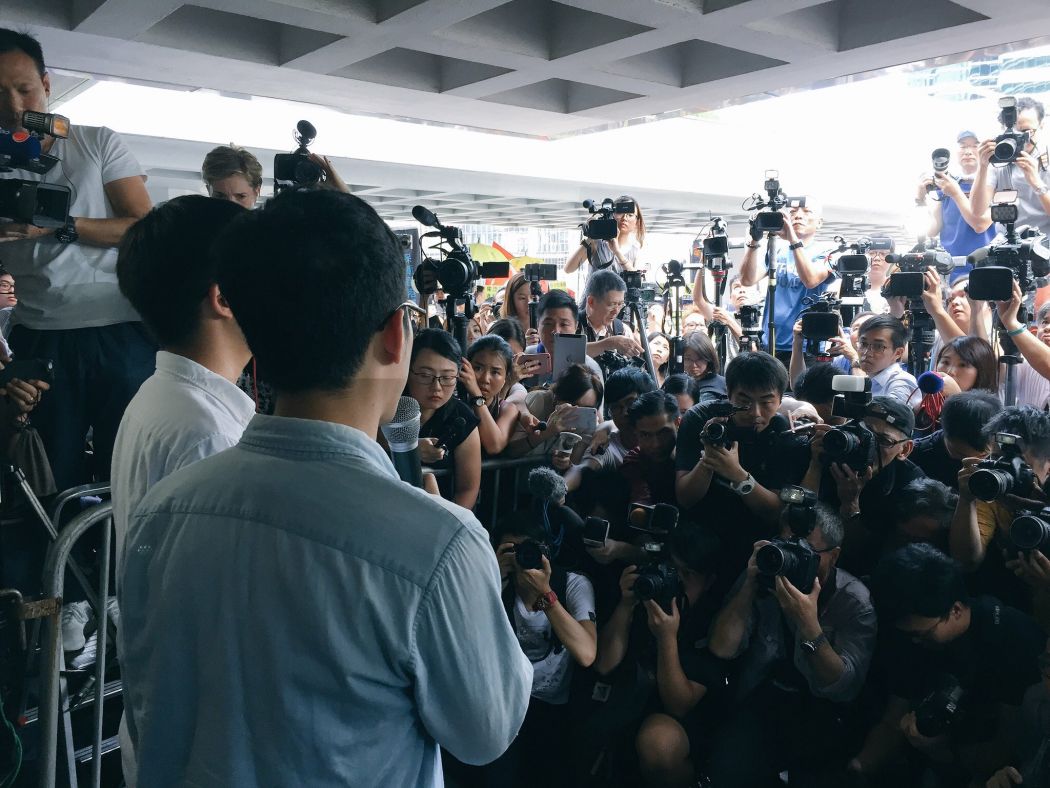
“The purpose of press freedom is not to let authoritarian regimes freely disseminate contents that suit their interests. Rather, it is to empower the citizens through the provision of unbiased information, and protect the public against attempts to spread propaganda and disinformation. China’s decision goes against everything that press freedom stands for.”
The International Federation of Journalists (IFJ)
The IFJ issued a statement along with its affiliates, the Hong Kong Journalists Association and Associação de Imprensa em Português e Inglês de Macau, saying they were “deeply” disappointed by the decision which will harm the public’s right to know “at a critical juncture.”
“The free flow of information that journalists facilitate is pivotal, particularly in the face of the coronavirus (Covid-19) pandemic… The IFJ is disappointed at the decline in relations between the US and China that has led to the unnecessary targeting of journalists.”
The Hong Kong Journalists Association (HKJA)
“We regret mainland China’s decision to restrict US media in Hong Kong and Macau and urges the Hong Kong government to clarify visa arrangements,” said the The Hong Kong Journalists Association.
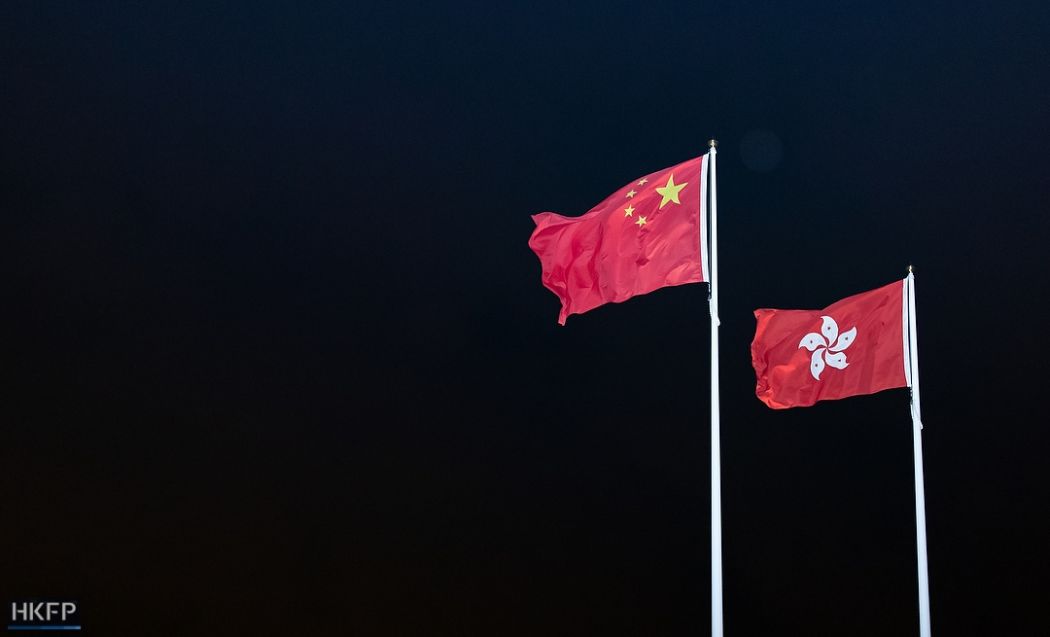
“Freedom of speech and freedom of the press are the cornerstones of Hong Kong’s success. Restricting the normal interview activities of foreign media in Hong Kong and conducting political scrutiny of visas for foreign media will raise international questions about whether Hong Kong is still a free and open society, which will ultimately have a serious impact.”
Associação de Imprensa em Português e Inglês de Macau (AIPIM)
“We are highly concerned and regret the inclusion of Macau and Hong Kong in the Central Government’s decision to ban American journalists from three US media outlets from working in China,” said the Macau press association, Associação de Imprensa em Português e Inglês de Macau. “AIPIM is worried about the negative impact of the escalating tensions between the United States and China over press freedom and hopes that this situation can de-escalate and be reversed as soon as possible.”
Asian American Journalists Association (AAJA), Asia chapter
The AAJA said it emphatically protested the decision to revoke the American journalists’ China credentials: “AAJA-Asia condemns government interference with a free press anywhere in the world.”
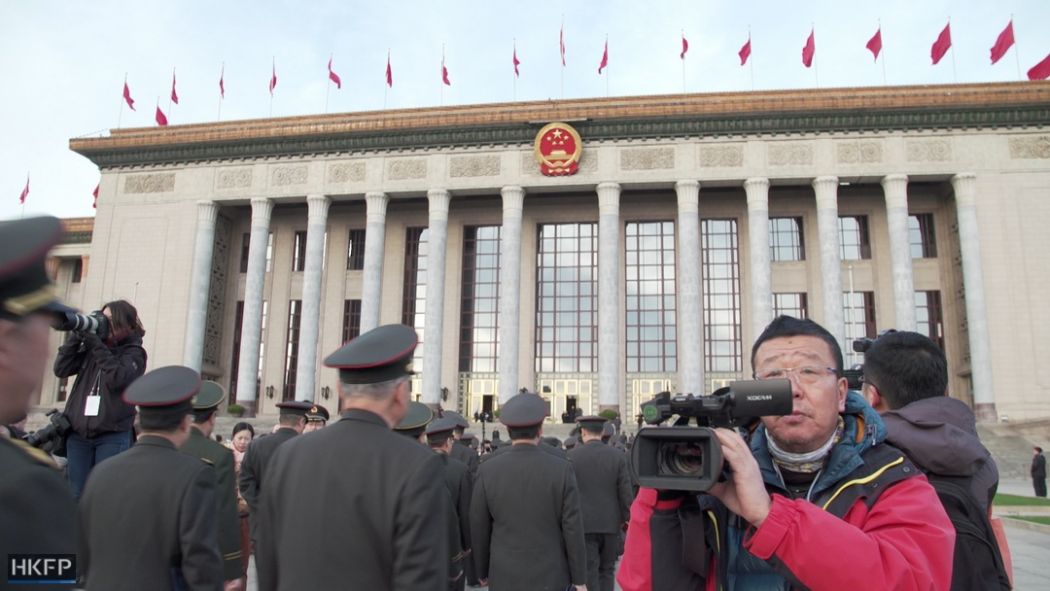
“China’s actions represent an attack against the basic right to be informed and the cherished value of freedom of the press. These actions are made even more dangerous and irresponsible during the global crisis of the coronavirus pandemic we all face together… The imminent contraction of factual information and quality journalism coming out of China put at risk the health and lives of millions of people around the world.”
“We call on both China and the United States to:
- Be responsible and respectful actors;
- Quickly resolve the tit-for-tat retaliation against each country’s journalism and media organizations;
- Allow affected journalists to pursue their important work;
- Refrain from leveraging journalism visas and press accreditations as diplomatic weapons;
- Value journalism’s crucial role in informing citizens and dispelling harmful rumours and outright lies.”
The Committee the Protect Journalists (CPJ)
The CPJ Asia Program Coordinator Steven Butler said: “The Committee to Protect Journalists condemns this senseless but entirely predictable retaliation by the Chinese government, which threatens to sharply curtail the reporting operations of major U.S. publications in China.”
“Beijing and Washington should negotiate to solve their differences and stop taking measures that cripple news reporting during a global pandemic, when the public’s need for accurate information is greater than ever.”
“[CPJ] condemns this senseless but entirely predictable retaliation by the Chinese government, which threatens to sharply curtail the reporting operations of major U.S. publications in China.” @CPJAsia‘s @StevenBButler https://t.co/QYjP31PoLc pic.twitter.com/73CBzdiOrh
— Committee to Protect Journalists (@pressfreedom) March 17, 2020
Hong Kong Watch
Benedict Rogers, co-founder and chair of UK-based NGO Hong Kong Watch, condemned the measure, saying: “[Wednesday’s] announcement that China plans to expel American journalists from three of the world’s most influential media is an outrageous assault on press freedom. Coming at a time of a global pandemic which originated in China, and a period of serious political unrest in Hong Kong, this is a flagrant attempt by the Chinese regime to silence those who report the truth.”
“Even more significantly, it is a severe violation of Hong Kong’s Basic Law and a grave breach of the Sino-British Joint Declaration. The United Kingdom must lead the world in speaking out clearly and robustly against this.”
